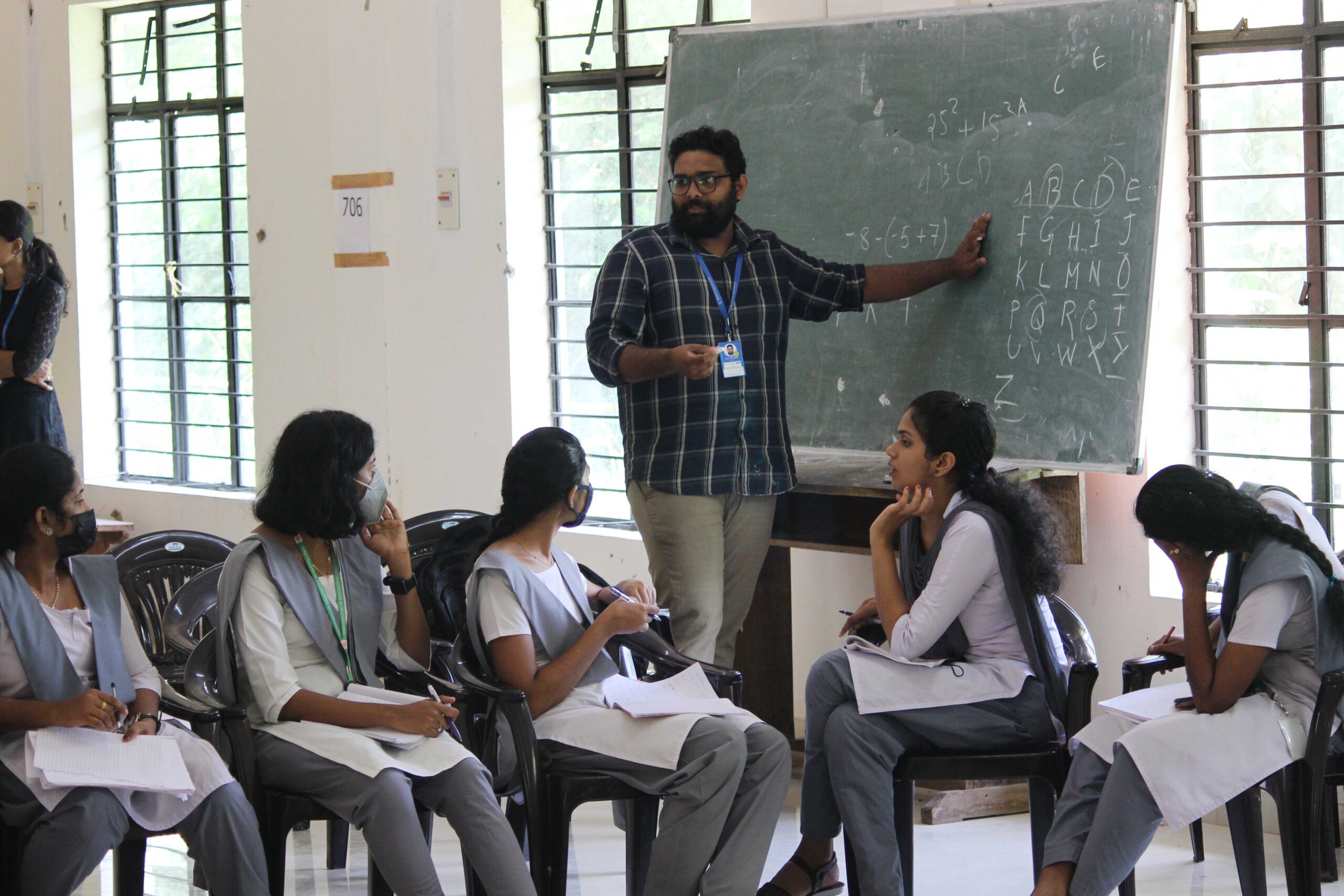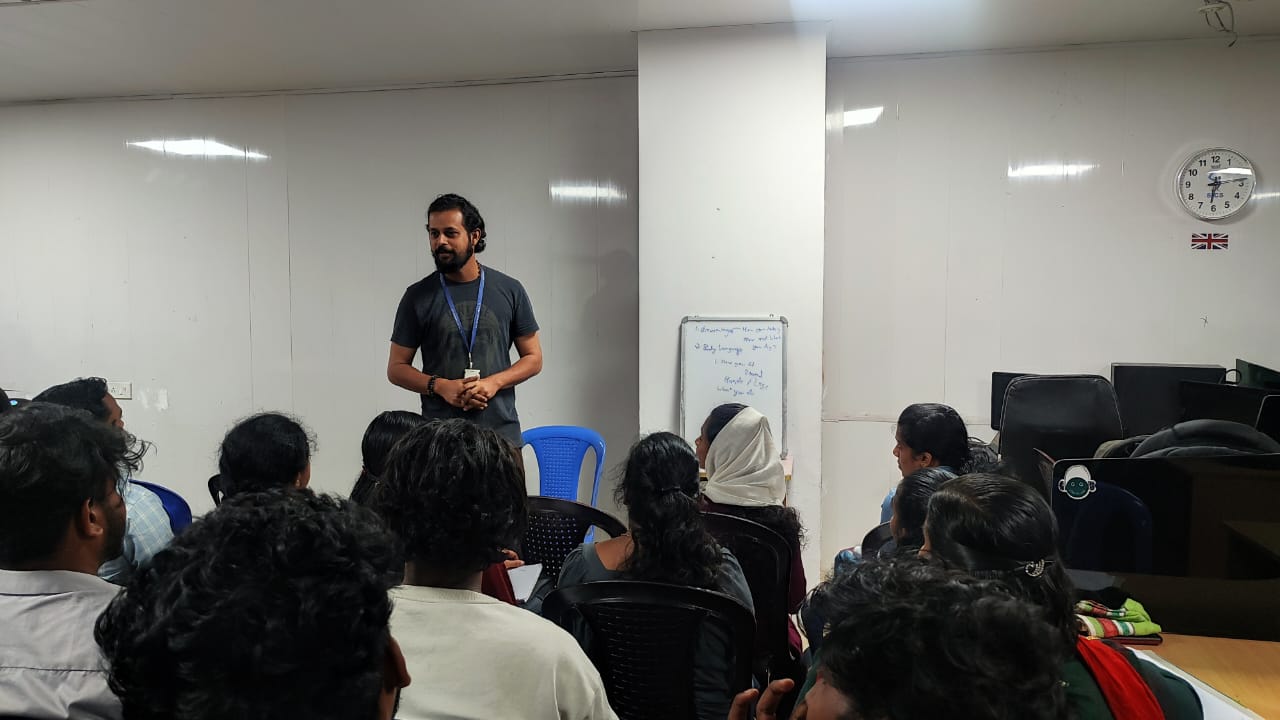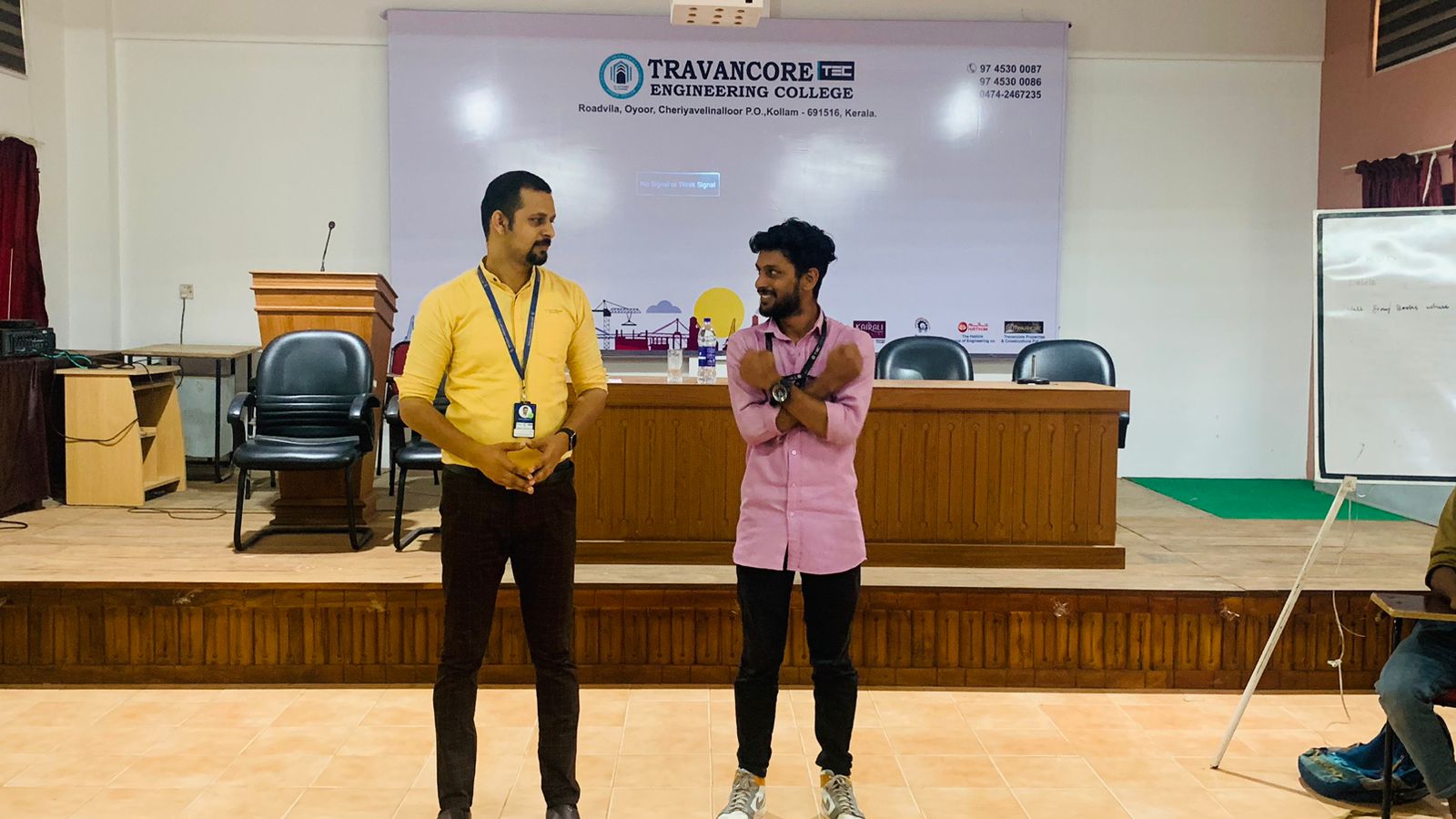1. Tell me about yourself?
Why This Question is Asked:
This question is a common icebreaker and helps the interviewer gauge how you present yourself. It allows the interviewer to understand your background, key skills, and what you consider important in your career.
How to Answer:
- Start with a brief overview of your academic background.
- Highlight any relevant internships, projects, or work experience.
- Mention your skills and how they relate to the job you’re applying for.
- Keep it concise and focused on professional achievements rather than personal life.
Sample Answer for Freshers:
“I recently graduated with a degree in Computer Science from XYZ University. During my studies, I completed an internship at ABC Company, where I worked on a project involving web development. I developed strong skills in HTML, CSS, and JavaScript. I’m particularly interested in front-end development, and I’m excited about the opportunity to contribute to your team by applying my knowledge and enthusiasm for technology.”
2. Why do you want to join our organization?
Why This Question is Asked:
The interviewer wants to assess your motivation for applying to their company and whether you’ve researched the company’s values, culture, and industry position.
How to Answer:
- Research the company beforehand and mention specific reasons why you want to work there.
- Align your answer with the company’s mission, values, or the opportunities they offer that excite you.
- Avoid generic responses; instead, tailor your answer to the specific organization.
Sample Answer for Freshers:
“I’m drawn to your company because of its innovative approach to technology and commitment to sustainability. I admire the projects you’ve undertaken, such as the recent launch of your eco-friendly product line. I want to contribute to a company that is at the forefront of both technology and environmental responsibility, which aligns with my own values and career goals.”
3. What is your greatest strength?
Why This Question is Asked:
The interviewer is looking to understand what you excel at and how your strengths could be beneficial to the company.
How to Answer:
- Choose a strength that is relevant to the job role.
- Provide examples from your past experiences that demonstrate this strength.
- Be honest but not boastful; relate your strength to how it would help you succeed in the job.
Sample Answer for Freshers:
“My greatest strength is my ability to quickly learn and adapt to new technologies. During my internship at XYZ Company, I was tasked with learning a new software tool within a week, and I was able to not only learn it but also use it to improve the efficiency of our project by 20%. I believe this ability to quickly grasp new concepts would be a great asset in a fast-paced environment like yours.”
4. What is your greatest weakness?
Why This Question is Asked:
This question helps the interviewer assess your self-awareness and honesty. They are also interested in how you handle challenges and whether you take steps to improve.
How to Answer:
- Choose a real weakness but ensure it’s something that doesn’t directly impact your ability to perform the job well.
- Discuss what you are doing to overcome or manage this weakness.
- Avoid cliché weaknesses like “I’m a perfectionist.”
Sample Answer for Freshers:
“I sometimes struggle with delegating tasks because I like to ensure everything is done correctly. However, I’m working on improving this by learning to trust my team members and recognizing that collaboration can lead to even better results. For example, during my final year project, I actively worked on delegating tasks to my team members and found that it significantly improved our efficiency.”
5. How do you handle stress/pressure?
Why This Question is Asked:
The interviewer wants to know how you cope with challenging situations and whether you can maintain productivity under pressure.
How to Answer:
- Provide examples of past experiences where you handled stress effectively.
- Discuss specific strategies you use to manage pressure, such as time management or prioritizing tasks.
- Emphasize your ability to remain calm and focused.
Sample Answer for Freshers:
“I handle stress by staying organized and maintaining a clear focus on my priorities. For example, during my internship, I was given multiple deadlines for different projects at the same time. I managed the pressure by creating a detailed schedule and breaking down the tasks into smaller, manageable steps. This approach helped me meet all the deadlines without compromising the quality of my work.”
6. Why should we hire you?
Why This Question is Asked:
This is a closing question that gives you a chance to summarize your qualifications and convince the interviewer that you are the best candidate for the job.
How to Answer:
- Highlight your key strengths and how they align with the job requirements.
- Mention any unique qualities or experiences that make you stand out.
- Show enthusiasm for the role and the company.
Sample Answer for Freshers:
“You should hire me because I bring a strong foundation in [relevant skill/field] from my academic studies, combined with practical experience from my internship at XYZ Company. I’m eager to apply my skills and continue learning in a dynamic environment like yours. My adaptability, quick learning ability, and passion for [industry/role] make me a great fit for this position.”
7. What is your expected salary?
Why This Question is Asked:
This question is asked to gauge whether your salary expectations align with the company’s budget for the role.
How to Answer:
- If you’re unsure, research the average salary for the role in your area before the interview.
- Consider providing a range rather than a specific number.
- Express willingness to negotiate based on the overall compensation package.
Sample Answer for Freshers:
“Based on my research and understanding of the industry standards for this role, I believe a salary range of [insert range] would be appropriate. However, I’m open to discussing this further and am flexible depending on the overall benefits and opportunities for growth within your company.”
8. Do you prefer working independently or on a team?
Why This Question is Asked:
The interviewer wants to understand your work style and whether you can adapt to different team dynamics or tasks that require independence.
How to Answer:
- Mention that you are comfortable with both, and provide examples.
- Explain that your preference depends on the task at hand, but you value collaboration and also appreciate having the space to work independently when needed.
Sample Answer for Freshers:
“I enjoy both working independently and as part of a team. During my internship, I was able to work on individual projects that required me to manage my time and resources effectively. However, I also collaborated with a team on a group project where we had to brainstorm and solve complex problems together. I find that both approaches are valuable depending on the nature of the work.”
9. How do you make important decisions?
Why This Question is Asked:
This question assesses your decision-making process and whether you can make thoughtful and informed decisions.
How to Answer:
- Discuss your process for gathering information, weighing options, and making decisions.
- Provide an example of a past decision you made and its positive outcome.
- Emphasize critical thinking and the ability to consider different perspectives.
Sample Answer for Freshers:
“When making important decisions, I like to start by gathering all relevant information and considering the pros and cons of each option. For example, when choosing my final year project, I carefully evaluated the resources available, the skills I wanted to develop, and the potential impact of each project option. This methodical approach helped me choose a project that not only aligned with my interests but also provided significant learning opportunities.”
10. Who/What inspired you to choose this career?
Why This Question is Asked:
The interviewer wants to understand your motivation for choosing your career path and what drives you.
How to Answer:
- Share a personal story or experience that led you to pursue this career.
- Mention any role models or significant influences that shaped your decision.
- Connect your passion for the field with the job you’re applying for.
Sample Answer for Freshers:
“My inspiration to pursue a career in [field] came from a [specific experience or person]. For example, during high school, I had a teacher who introduced me to the world of programming. Their passion for coding and the creativity involved in solving problems through software really resonated with me, and I decided to pursue a degree in Computer Science. I’m excited to build on that foundation and continue exploring this field professionally.”
11. Tell me about your dream job?
Why This Question is Asked:
This question helps the interviewer understand your long-term career aspirations and whether the role you’re applying for aligns with those goals.
How to Answer:
- Describe aspects of a job that you value the most, such as creativity, impact, or opportunities for growth.
- Align your dream job with the position you’re interviewing for by highlighting relevant elements.
- Be realistic and keep your answer focused on achievable goals.
Sample Answer for Freshers:
“My dream job is one where I can continuously learn and grow while making a meaningful impact. I’m passionate about using technology to solve real-world problems, and I’m looking for a role that allows me to innovate and work on challenging projects. The position at your company seems like a great fit because it offers the opportunity to work with cutting-edge technology and contribute to important projects.”
12. How do you handle rejection?
Why This Question is Asked:
This question assesses your resilience and how you deal with setbacks. The interviewer wants to see if you can maintain a positive attitude and learn from your experiences.
How to Answer:
- Acknowledge that rejection can be tough but focus on how you use it as a learning experience.
- Provide an example of how you’ve dealt with rejection in the past and what you learned from it.
- Emphasize your ability to move forward and stay motivated.
Sample Answer for Freshers:
“Rejection is never easy, but I see it as an opportunity to grow. For example, when I didn’t get the internship I initially wanted, I reached out to the recruiter for feedback on how I could improve. I used their advice to enhance my skills and eventually secured an internship at another company. This experience taught me the importance of resilience and continuous improvement.”
13. What are your goals for the next five years?
Why This Question is Asked:
The interviewer is interested in your long-term vision and how this job fits into your career trajectory. They want to see if your goals align with the company’s objectives.
How to Answer:
- Mention specific career milestones you hope to achieve in the next five years.
- Connect your goals with the skills and experiences you’ll gain in the role you’re applying for.
- Show ambition but keep your goals realistic and achievable.
Sample Answer for Freshers:
“In the next five years, I aim to develop my expertise in [relevant field] and take on increasing responsibilities in project management. I hope to gain experience in leading a team and eventually move into a senior role where I can contribute to strategic decisions. This position aligns with my goals because it offers opportunities for skill development and professional growth.”
14. Describe a time when you had to work with a difficult team member. How did you handle it?
Why This Question is Asked:
This question assesses your interpersonal skills and how you handle conflict or challenging situations in a team setting.
How to Answer:
- Choose an example that demonstrates your ability to handle conflict professionally and constructively.
- Focus on how you approached the situation, the actions you took, and the positive outcome.
- Highlight your ability to maintain professionalism and foster a collaborative environment.
Sample Answer for Freshers:
“During a group project at university, I had a team member who was not contributing equally to the work. I decided to have an open and honest conversation with them to understand their perspective. It turned out they were struggling with time management due to other commitments. We then redistributed the tasks to accommodate their schedule better, and I offered to help with some of their work. This improved our collaboration, and we successfully completed the project on time.”
15. What motivates you to perform well?
Why This Question is Asked:
The interviewer wants to know what drives you to succeed and how your motivation aligns with the company’s goals.
How to Answer:
- Share what motivates you personally, whether it’s achieving goals, learning new things, or making a difference.
- Relate your motivation to the job and the impact you hope to make.
- Avoid generic answers; be specific about what drives you.
Sample Answer for Freshers:
“I’m motivated by the challenge of solving complex problems and seeing the tangible results of my work. I enjoy setting goals and pushing myself to achieve them. For example, during my internship, I was motivated by the opportunity to improve a process that saved the company both time and resources. Knowing that my work can have a positive impact keeps me driven and focused.”
These questions and answers are designed to help you prepare for interviews by giving you a framework to build your own personalized responses. Tailoring your answers to your unique experiences will help you stand out and make a strong impression.
How to Answer “Do You Have Any Questions for Me?” in an Interview
Why This Question is Asked:
This question is typically asked at the end of an interview to give you the opportunity to learn more about the company, the role, and the team. It also allows the interviewer to see how engaged and interested you are in the position. Asking thoughtful questions shows that you’ve done your research and are serious about the opportunity.
How to Approach This Question:
- Be Prepared: Always have a few questions ready to ask. Not asking questions can be interpreted as a lack of interest.
- Focus on the Role and Company: Ask questions that show your interest in the role, the team, and the company’s future. Avoid questions about salary or benefits unless the interviewer brings them up.
- Demonstrate Your Enthusiasm: Your questions should reflect your enthusiasm for the position and your desire to understand how you can contribute to the company’s success.
- Customize Your Questions: Tailor your questions based on what you’ve learned during the interview process. This shows that you’ve been actively listening and are genuinely interested.
Examples of Good Questions to Ask
1. Questions About the Role:
- “Can you tell me more about the day-to-day responsibilities of this job?”
This question helps you understand what your typical day might look like and whether the job aligns with your expectations.
- “What are the most important skills and qualities you’re looking for in a candidate?”
Asking this helps you identify the key competencies required for the role and whether you’re a good fit.
- “What would success look like in this role in the first 6 months to a year?”
This shows you’re thinking about how to contribute effectively from the start and want to understand the performance expectations.
2. Questions About the Team and Culture:
- “Can you tell me more about the team I would be working with?”
Understanding the team dynamics can help you assess whether you’ll fit in and enjoy working with your potential colleagues.
- “How would you describe the company culture?”
This gives you insight into the work environment and whether it aligns with your work style and values.
- “How do you support professional development and career growth?”
This shows you’re interested in growing within the company and want to know how they invest in their employees’ futures.
3. Questions About the Company:
- “What are the company’s goals for the next few years, and how does this department contribute to those goals?”
This shows you’re thinking about the bigger picture and how your role fits into the company’s long-term strategy.
- “What are the biggest challenges the company or department is currently facing?”
Understanding the challenges can give you a sense of what you might be dealing with in the role and how you can prepare to contribute.
- “How does the company support work-life balance for its employees?”
This is a thoughtful way to inquire about work culture and expectations without directly asking about hours.
4. Questions About the Interviewer’s Experience:
- “What do you enjoy most about working here?”
This question can provide you with a personal perspective on the company’s culture and environment.
- “How has your role evolved since you started here?”
This can give you insights into potential career paths and opportunities for growth within the company.
- “What has been your biggest challenge working here?”
Asking about challenges can provide a realistic view of the company and help you assess whether you’re prepared for those challenges.
What to Avoid Asking
- Questions about salary, benefits, or vacation time: These topics should be avoided unless the interviewer brings them up first.
- Questions that could be easily answered by researching the company’s website: This may give the impression that you haven’t done your homework.
- Questions about promotions or raises: Focus on the role at hand rather than future advancements.
Sample Closing Response
After asking your questions, it’s good to close on a positive note. You could say something like:
“Thank you for answering my questions. I’m even more excited about the opportunity to work with your team and contribute to [Company Name]. I look forward to the next steps in the process.”
Final Tip:
Prepare 3-5 questions in advance, but be flexible. If the interviewer already answered some of your questions during the conversation, adjust accordingly. This demonstrates that you’ve been actively listening and are genuinely engaged in the discussion.











